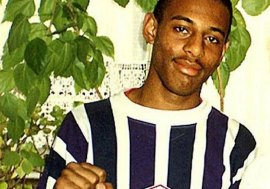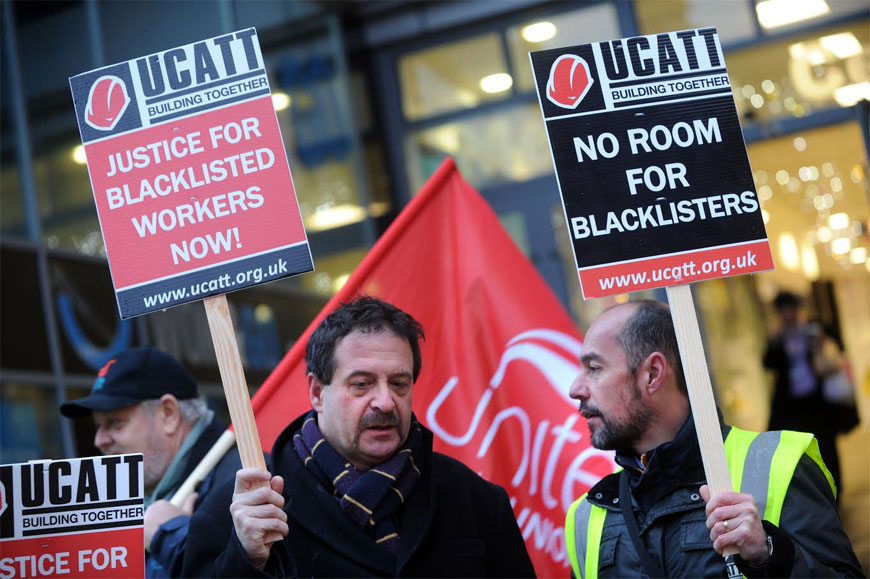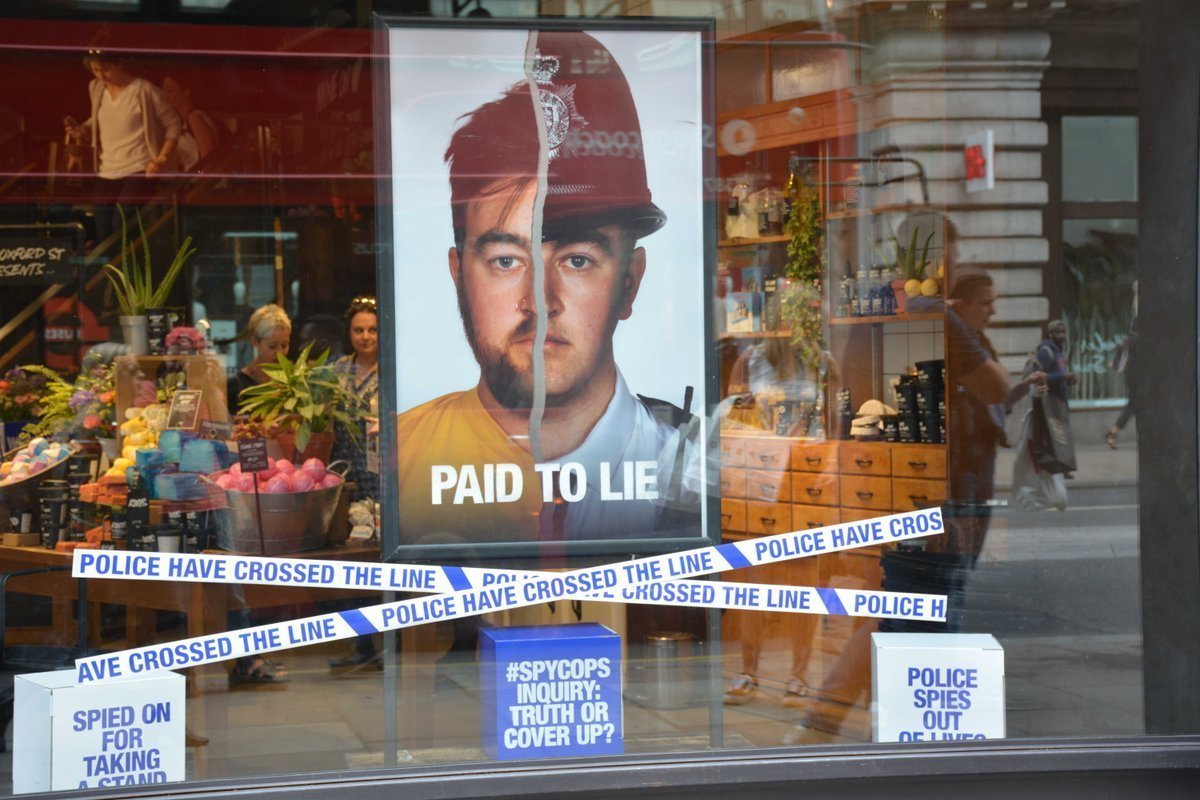The inquiry into police infiltration of activist organisations and trade unions is finally underway. First up is the question of police involvement in blacklisting. The evidence is clear: the state exists to protect the bosses’ system.
After years of delay and constant stalling, the long-awaited Undercover Policing Inquiry (UCPI) finally got underway at the start of November.
A full five years have passed since then-PM Theresa May announced the setting up of a public inquiry into the activities of two undercover police units: the Special Demonstration Squad (SDS) and the National Public Order Intelligence Unit.
This followed press revelations that, over a 40-year period, these two units between them had spied on and infiltrated a whole number of campaigns, groups, and political organisations. Their aim was to undermine, report on, and in some cases actually encourage law-breaking in order to entrap activists.
Agents of the state would spend years pretending to be active members of organisations – even to the point of forming physical relationships with group members in order to maintain the illusion. Any group deemed by the police to be ‘subversive’ or a source of trouble was targeted.
Cover-up
 One such group was the Stephen Lawrence campaign. Formed in response to the murder of teenager Stephen Lawrence, the police began to worry that the campaign was getting too close to the fact that officers had conspired to cover up the events surrounding the murder in order to protect key individuals.
One such group was the Stephen Lawrence campaign. Formed in response to the murder of teenager Stephen Lawrence, the police began to worry that the campaign was getting too close to the fact that officers had conspired to cover up the events surrounding the murder in order to protect key individuals.
Speaking on behalf of Stephen’s family, including his mother, Baroness Doreen Lawrence, one lawyer told the inquiry that:
“Stephen would now be 46 years’ old…His racist murderers, however, are still alive; not a single police officer was disciplined or sacked, rather they were promoted in their careers or are now enjoying their retirement; and many of those that spied upon Baroness Lawrence and her family have, to date, evaded proper scrutiny.”
Even now the police still refuse to admit that the SDS spied on the campaign. Many righty accuse the police of continuing to evade justice over this. No wonder Doreen Lawrence has stated that she has little faith in how things are going.
This case alone shows why the ‘Spy Cops’ inquiry has been delayed for so long – and why many have good reason to believe that nothing will finally come of it.
Delays
Needless to say, the inquiry is proceeding at a glacial pace. Indeed, there has been little reporting from the mainstream press to show that it is even taking place. Remarkably, it is expected that the inquiry will not conclude its business until at least 2023!
Many campaigners have complained that the inquiry, in effect, is taking place behind closed doors. The only available coverage is an online text scrawl, which one activist likened to the days of Ceefax. Even live-streaming the sessions is impossible, we are told.
Unsurprisingly, the inquiry chair, Sir John Mitting, is proving to be very sympathetic to the establishment. He has used his position to limit the rights of legal representatives to question witnesses properly. Lawyers have also complained about problems with seeing all the evidence.
Thanks to @JohnHendyQC for speaking out about the shocking revelations of the #Spycops hearings pic.twitter.com/wxNX9elVJf
— TUCG (@TUCGinfo) November 24, 2020
Dirty tricks
All the early attention has concentrated on police targeting of trade unions. None of this will come as any surprise to union activists. But even so, the scale is incredible.
A legal submission made by Lord Hendy QC outlined the degree of suspected police infiltration of trade unions:
“Peter Francis, an undercover police officer who served in the SDS from 1993-1997, has said that he carried out covert surveillance of members of the National Union of Teachers (now the NEU), the CWU, the FBU and UNISON. Another undercover officer, Mark Jenner (‘Cassidy’) posed as a joiner to become a member of UCATT in 1996-1998.”
Unite the Union outlined how they had seen dirty police tricks going on for decades: from the Shrewsbury pickets, to Grunwick, to Wapping and beyond.
Blacklisting
 However all the early fire has focussed on the issue of blacklisting. Dave Smith from the Blacklist Support Group had been due to submit his opening statement early on. Instead, he found himself being challenged over the contents of his submission and prevented from speaking.
However all the early fire has focussed on the issue of blacklisting. Dave Smith from the Blacklist Support Group had been due to submit his opening statement early on. Instead, he found himself being challenged over the contents of his submission and prevented from speaking.
This challenge revolved around the technicality of Dave giving the real name of one of the police officers involved in maintaining the blacklist organised by the construction companies. The name has long been in the public domain. But clearly the real intention was to delay Dave from speaking.
In the end, they could only delay matters. Finally, on 17 November, Dave got to tell the truth to the inquiry about the scandal that is blacklisting.
“I am a blacklisted construction worker trying to get the truth of how me and my friends have been treated by the state,” Dave stated. “I will not be silenced.”
At last, representing other workers like himself, Dave was able to outline in court how The Consulting Association (TCA) – financed by big business – had organised a blacklist across the construction industry for years.
Through these means, construction bosses were able to stop hundreds of workers from being employed. It was a clearly political campaign, with union activists and militants being targeted without remorse.
Blacklist Support Group send solidarity greetings to all non-state core participants in the #SpyCopsInquiry that finally starts today.
They spied on us & they gave their intelligence to big business who used it to blacklisted us. They picked the wrong people to pick a fight with. pic.twitter.com/FqRNd3IVTB— Dave Smith – Join A Union: Save Lives Save Jobs (@DaveBlacklist) November 2, 2020
Central to Dave’s submission was the demand that those involved in aiding TCA should be named and brought to justice:
“We are calling on the Inquiry to force the police to publish the names of Special Branch Industrial Unit’s ‘key industry contacts’ that both supplied and received information.
“We want the directors and the companies that were supplied with information about union activists to be named. And from the point of view of the BSG, if any trade union officials were amongst the ‘key industry contacts’ supplying information to the police, we call for them to be named as well.”
Indeed, Dave went on to outline how undercover officers intervened directly in union matters, and even tried to trick activists into committing arson.
Rotten system
 In conclusion, Dave made it clear that – whatever the inquiry does or does not do – the fight to expose what has happened will go on.
In conclusion, Dave made it clear that – whatever the inquiry does or does not do – the fight to expose what has happened will go on.
“Keeping this dark underbelly of anti-democratic political policing hidden is against the public interest – it only helps the perpetrators of wrongdoing – not the survivors or the British public.”
“The police can claim all they like that they were protecting democracy. But by spying on trade union members and colluding with our blacklisting, the UK’s political policing units are actually protecting big business and capitalism. And for the avoidance of all doubt: capitalism and democracy are not the same thing.”
The blacklisting operation carried out by TCA was just one of many such operations being run for the benefit of big business. But this raises important questions: How many more are still running? What involvement does the state have in this?
Over the coming months (and years) the inquiry will no doubt hear much more evidence about how the state – through the police and other organisations, such as MI5 – has sought to spy on trade unions, in order to undermine workers’ struggles.
We should be clear: under capitalism, the examples exposed in this inquiry are the rule, not the exception.
In revealing the cosy links between big business, the state, and its agents, we must draw the necessary conclusion: we need to sweep this whole rotten system away, once and for all.






